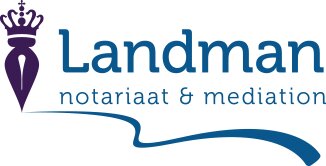Best Renewable & Alternative Energy Lawyers in Netherlands
Share your needs with us, get contacted by law firms.
Free. Takes 2 min.
Or refine your search by selecting a city:
List of the best lawyers in Netherlands
About Renewable & Alternative Energy Law in Netherlands
The Netherlands is recognized as a European leader in sustainability, aiming to reduce greenhouse gas emissions and increase its use of renewable and alternative energy sources. The Dutch government is firmly committed to transitioning from fossil fuels to sustainable energy. Renewable energy law in the Netherlands encompasses regulations on wind, solar, biomass, geothermal energy, and more. The legal framework governs the development, production, and consumption of alternative energy, ensuring projects comply with both national and European Union standards. It also sets incentives for investment and innovation in green technologies, supporting the country's ambition for a climate-neutral future.
Why You May Need a Lawyer
Legal assistance may be essential when navigating the complex policies and regulations related to renewable and alternative energy in the Netherlands. Common situations where you might need a lawyer include:
- Establishing or expanding renewable energy businesses
- Applying for permits for wind farms, solar parks, or other new energy projects
- Negotiating power purchase agreements or joint ventures
- Complying with planning and environmental laws
- Disputes over land use or grid connections
- Accessing government subsidies and incentive schemes
- Addressing liability or insurance matters related to energy installations
- Understanding cross-border renewable project regulations
An experienced lawyer can clarify your rights, help avoid costly errors, and ensure your project aligns with both local and EU requirements.
Local Laws Overview
Dutch renewable and alternative energy law is shaped by a combination of national legislation, EU directives, and local policies. Key legal aspects include:
- Climate Legislation: The Dutch Climate Act sets ambitious targets for emission reductions, steering energy policies and investments.
- Energy Law: The Electricity Act and the Gas Act provide rules for production, transmission, and supply of electricity and gas, including renewable sources.
- Permitting Procedures: Renewable energy projects must often obtain environmental, spatial, and building permits from municipal or provincial authorities.
- Subsidies and Incentives: The Sustainable Energy Production and Climate Transition Incentive Scheme (SDE++) provides financial support for renewable projects.
- Environmental Regulations: Strict standards ensure that energy projects minimize impact on nature and conform to water, soil, and noise regulations.
- Grid Access: Operators must comply with rules for connecting renewable installations to the national grid.
- EU Directives: Dutch law is influenced by EU renewable energy targets and state aid regulations, requiring alignment and reporting.
Frequently Asked Questions
What types of renewable energy are supported in the Netherlands?
The Netherlands supports wind (onshore and offshore), solar, biomass, geothermal, and, to a lesser extent, hydropower projects under various incentives and policies.
Do I need a permit to install solar panels or a wind turbine on my property?
Most home solar installations do not need special permits if they comply with local construction rules. Wind turbines and large-scale solar or wind projects nearly always require multiple permits from local authorities.
What government incentives are available for renewable energy?
The main support mechanism is the SDE++ subsidy scheme, which provides financial incentives for the production of sustainable energy. Other programs may also be available for small scale or innovative projects.
How are renewable projects affected by environmental regulations?
Projects must meet strict environmental standards to protect wildlife, water sources, and local communities. Environmental impact assessments are often required, especially for larger developments.
Who is responsible for connecting renewable energy projects to the grid?
Grid operators manage grid connections. Project developers must apply for connection and comply with technical requirements and timelines set by the operator.
Are there rules for selling renewable energy to the grid?
Yes, separate rules govern the sale of electricity to the grid. Contracts must comply with energy law, and in some cases, specific agreements like power purchase agreements are used.
Can homeowners or businesses generate and use their own energy?
Yes, self-generation for private use is common and often financially attractive. The net-metering system (salderingsregeling) allows households to offset their electricity consumption with their own solar production.
What legal challenges might renewable energy projects face?
Challenges may include zoning disputes, objections from local residents, delays in permitting, changes in subsidy laws, technical grid issues, or conflicts over land use.
How are offshore wind farms regulated?
Offshore wind farms are subject to strict national rules and licensing, including environmental, spatial planning, and maritime laws, coordinated with the Ministry of Economic Affairs and Climate Policy.
What role does the European Union play in Dutch renewable energy policy?
EU directives shape national targets, funding opportunities, and state aid rules. The Netherlands must align its laws with EU climate and energy goals and regularly report on progress.
Additional Resources
If you need more information or support, consider these resources:
- Dutch Ministry of Economic Affairs and Climate Policy - develops and manages national energy strategy and climate policy.
- Netherlands Enterprise Agency (Rijksdienst voor Ondernemend Nederland - RVO) - provides information about subsidies, permits, and support for entrepreneurs and project developers.
- Authority for Consumers and Markets (ACM) - supervises fair competition and regulation in the energy sector.
- TenneT - the national electricity transmission system operator, responsible for grid access and capacity.
- Environmental Assessment Agency (PBL) - conducts research and analysis on environmental and energy policy.
- Netherlands Wind Energy Association (NWEA) and Holland Solar - industry groups offering support and advocacy for sector stakeholders.
Next Steps
If you are considering a renewable or alternative energy project in the Netherlands or require legal advice regarding compliance, contracts, subsidies, or dispute resolution, it is advisable to consult with a specialized lawyer. Here is how you can proceed:
- Document your project goals, questions, and challenges.
- Gather all relevant documents, such as business plans, technical proposals, and correspondence with authorities.
- Research local legal specialists experienced in renewable and alternative energy law.
- Schedule a consultation to discuss your situation and receive tailored legal advice.
- Follow your lawyer's guidance for applying for permits, securing subsidies, or resolving disputes efficiently.
Legal support can help ensure your renewable energy project is successful, compliant, and able to contribute to a more sustainable future in the Netherlands.
Lawzana helps you find the best lawyers and law firms in Netherlands through a curated and pre-screened list of qualified legal professionals. Our platform offers rankings and detailed profiles of attorneys and law firms, allowing you to compare based on practice areas, including Renewable & Alternative Energy, experience, and client feedback.
Each profile includes a description of the firm's areas of practice, client reviews, team members and partners, year of establishment, spoken languages, office locations, contact information, social media presence, and any published articles or resources. Most firms on our platform speak English and are experienced in both local and international legal matters.
Get a quote from top-rated law firms in Netherlands — quickly, securely, and without unnecessary hassle.
Disclaimer:
The information provided on this page is for general informational purposes only and does not constitute legal advice. While we strive to ensure the accuracy and relevance of the content, legal information may change over time, and interpretations of the law can vary. You should always consult with a qualified legal professional for advice specific to your situation.
We disclaim all liability for actions taken or not taken based on the content of this page. If you believe any information is incorrect or outdated, please contact us, and we will review and update it where appropriate.
Browse renewable & alternative energy law firms by city in Netherlands
Refine your search by selecting a city.
















